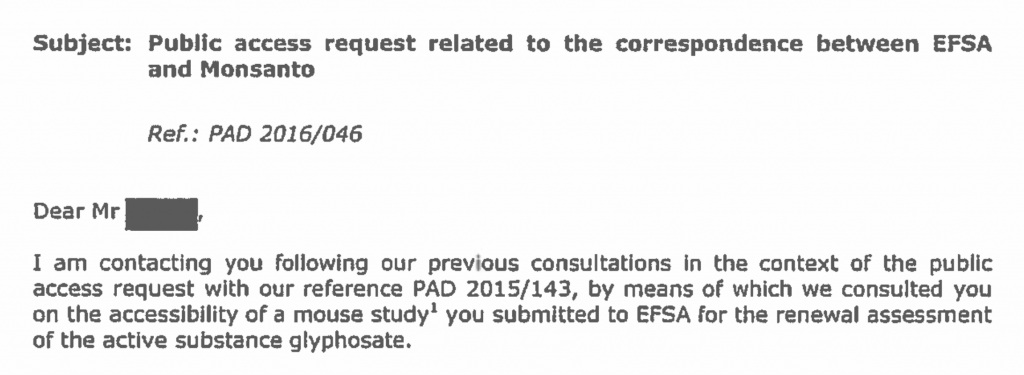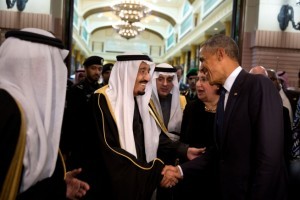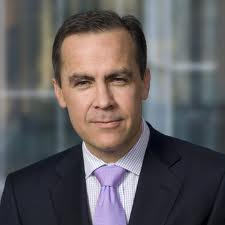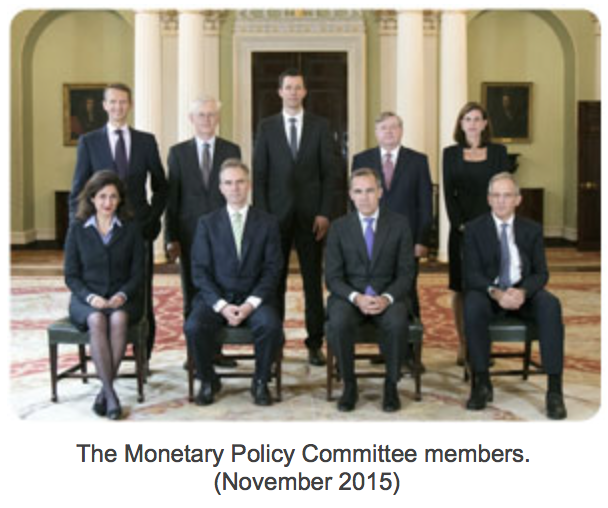(Please read Part I, Part II, Part III, Part IV , and Part V before this article)
The global economic position of ASEAN is of pivotal importance in contemporary international relations, but similarly just as significant is the region’s strategic one vis-à-vis China and the unipolar world. There’s a multitude of complex variables impacting on the current state of affairs, and in order to properly understand the present situation, one needs to become briefly familiarized with the region’s past.
Revisiting The Pages Of Time
The history of Southeast Asia is characterized by a rich intermingling of indigenous and foreign elements that combined to produce a unique regional identity. Some of these interactions are millennia-old while others are much more recent, but only the most lasting and relevant will be enumerated below. The following is by no means comprehensive and has been limited for the sake of space and focus, but the reader is recommended to independently pursue any of these leads if he or she is inclined to learn more. The highlighted selections are specifically curated in order to draw attention to the origins of how each of the five most currently powerful and geopolitically pertinent actors (China, India, Japan, the US, and Russia) affected Southeast Asia in their own specific way:
Civilizational Overlap
It’s not for naught that Europeans used to broadly describe Southeast Asia as “Indochina” since this is actually the precise region where Indian and Chinese civilizational influences intermingle to a large degree. The standard non-Asian individual nowadays likely has no idea why that neologism was initially chosen, but the history behind it is actually quite important and is increasingly returning as a factor in the present day.
India:
What most foreigners are completely unaware of is that India exerted tremendous civilizational influence over Southeast Asia for almost the past two millennia, with the effect being so strong that some scholars have controversially referred to the Indianized kingdoms of the time as being part of ‘Greater India’. While this is a highly sensitive term to use, it does carry with it much truth in a tangible sense. India’s civilizational footprint is still visible in the architecture of many of the temples dotting the Myanmar, Thai, Cambodian, and Indonesian landscapes, and it’s a well-established fact that Hinduism and Buddhism (both of which originated from India) have become inseparable parts of the region’s historical identity.

India under British rule
In fact, taking it a step further, the Islamization of modern-day Indonesia, the largest and most populous country in Southeast Asia and incidentally also the largest Muslim one in the world, is thought to have been largely facilitated by Muslim traders from Gujarat in contemporary India. Conclusively, while it may not be common knowledge to many outside observers, there is absolutely no denying that Indian civilization played a guiding role in influencing the progressive development of Southeast Asia’s identity, and that the historical reserves of soft power that India commanded could potentially be reactivated in part in order to advance its current geopolitical agenda, dependent of course on their skillful application and the appeal that various factors have to their respective targeted audiences.
China:
Imperial China played a much more direct and ‘hard’ role over Southeast Asia than India’s kingdoms ever did. The Emperor formally incorporated Vietnam into the realm for over a millennium and forced the lion’s share of the region to pay tribute to him at one time or another throughout their history. It doesn’t necessarily mean that the entirety of Southeast Asia was continually in a state of proxy servitude to China, but this sort of relationship with the Empire was noticeably and qualitatively different than that which was previously enjoyed with India and which had no formal power hierarchy between them. Nonetheless, this type of interaction wasn’t the only one that Southeast Asia had with China. Commercial ties between both of them were very deep and mutually beneficial owing to the region’s location along the maritime Silk Road to India and the Mideast, and this resulted in a moderate level of Chinese migration spurred on by the many merchant traders that dealt with the region.
The modern-day consequences of these ties are evident. China’s historical incorporation of Vietnam into the Empire is seen as a dark era of outright colonialism by many in the latter country, and it bred a level of resentment and distrust that became such an integral part of the Vietnamese national identity that it continues to impact on the present despite the nearly 1,000 years that have passed since that time. Elsewhere in Southeast Asia, the effect of China’s historical relations is much more positive in many respects and has given rise to a large ethnic diaspora community. According to The Wall Street Journal, there are approximately 7 million ethnic Chinese each in Thailand and Indonesia, with about 6 million residing in Malaysia (where they constitute a relatively larger proportion of the population). Reports indicate that ethnic Chinese are much more integrated and assimilated in Thailand than they are in Malaysia, and politically speaking, this creates both advantages (as in Thailand) and obstacles (like in Malaysia) for the application of Chinese foreign policy.

1844 Spruneri Map of Asia in the 15th and 16th Centuries
The attitude of the majority of the titular nationality towards the Chinese minority inevitably affects how they view China proper, so in the case of negative communal interactions such as in Malaysia, it’s difficult for the Chinese government to reassure the locals of their regional policies and gain their lasting trust. The same issue, however, is less of a factor in Thailand because of the much more harmonious relations between the ethnic groups. Of importance to mention is also that three-quarters of Singapore’s population are ethnic Chinese but that this doesn’t seem to be an influencing element one way or another due to the specific island identity that Lee Kuan Yew fostered over the decades. While China is the developed city-state’s top trading partner, political and security ties between the two are much more muted. It was only in 1990 that both sidesformally entered into bilateral relations with one another, and it was announced in early December 2015 that Singapore would be hosting US spy planes that will provocatively operate over the South China Sea. Overall, while China’s ethnic diaspora is a positive soft power asset in Thailand, it is also a complicating variable in Malaysia and surprisingly even a non-factor in Singapore, illustrating that Beijing’s potential utilization of this instrument is wholly dependent on the national conditions of the host country and cannot be patterned in any way.
The Lasting Legacy Of Imperial Japan
Fast-forwarding the historical record closer to the present, Japan’s World War II occupation of Southeast Asia can arguably be seen as being much more influential than the European colonialism that preceded it for decades. In more ways than one, Japan’s brief legacy of direct and bloody involvement in the region was cataclysmic in setting off the chain reaction of independence that would follow after the war, and it is also responsible for the rise of indelible national heroes in Vietnam, Myanmar, and Indonesia.
The War Years:
The Japanese occupation of Southeast Asia was promoted by Tokyo as a liberation campaign against the Western Imperialists, but in actuality it was the reimposition of the same oppressive system under a slightly tweaked format and racially different overseers. While at first being welcomed by many in the region as a welcome respite from European dominance, the regretful reality soon seeped in that nothing had in fact changed on a structural-political level. The resource exploitation and economic mismanagement that the Japanese engaged in helped contribute to the devastating famines in Vietnam and the most populous Indonesian island of Java, culminating in the deaths of one to two million and 2.4 million people, respectively. The Japanese were also very brutal with their subjects and would wantonly kill them for the slightest disobedience, to say nothing of the rampant torture they carried out against prisoners of war and suspected rebels. The only country that had it slightly better than the rest was Thailand, but that was simply because its formal World War II alliance with Imperial Japan required minimal occupation efforts to keep it in line.

Japanese Offensive in SEA, 1941
If there is any ‘positive’ that can be gleaned from this destructive period, then it’s that the Japanese proved that the European colonizers were not undefeatable and that Asians are in fact just as capable as any other race in rising up against their oppressors. In a similar vein, the temporary removal of the American and European colonial administrations and their gradual replacement with progressively more autonomous Japanese-occupied ones (especially in the closing days of the war) brought about an irreversible precedent that would inevitably lead to independence. The pace in which this achieved varied widely throughout the region, with Myanmar receiving it in 1948 for example, while Brunei didn’t experience it until 1984 (with the latter being explained by the Sultanate’s own self-interested unwillingness to part as a British protectorate earlier). In general, however, the Japanese occupation can be seen as a watershed event that completely upended the old European colonial system and greatly sped up their struggle for independence.
Independence Heroes:
One of the ways in which the Japanese occupation most directly shaped the contemporary national identity of some Southeast Asian states is through the independence heroes that emerged from its aftermath. These men left a very impressionable mark on their home countries that continues to resonate to this day, but they would not have ever had their chance to shape their countrymen’s national identity had it not been for their role in leading their states to independence in the first place. Each of the three heroes that will be mentioned rose to prominence due to the roles that they played in World War II, with their most noteworthy difference being the level of collaboration that they had with the Japanese occupiers.
The most independent of the bunch was Vietnam’s Ho Chi Minh, who wholeheartedly refused to accept Japan’s occupation of his homeland. He bravely fought against them and eventually assumed leadership of North Vietnam after expelling the French who had returned in their wake. Aung San from Myanmar (then called Burma) was cut from a completely different cloth, as he came to power during the war precisely because of his collaboration with the Japanese. He was trained in Japan and sent back to Myanmar just prior to the Axis invasion as a means of legitimizing it on national liberation grounds. He was later made War Minister of occupied Myanmar but became disillusioned with the Japanese and eventually rebelled against them near the end of the war. He subsequently helped lead his country to independence from the UK after the war but was tragically assassinated before he could ever see that day arrive. The third and last independence hero to come to power immediately after the war was Sukarno in Indonesia. The Japanese freed him from prison after invading the island nation and planned to use the renowned independence activist as their proxy for controlling the country. Sukarno took great strides in advancing Indonesian independence in the final months of the war, but he never rebelled against his masters and only declared independence after the Japanese had already surrendered.

Ho Chi Minh
These three independence heroes have rich personal backgrounds and performed their roles under extraordinarily complex conditions, which thus explains why Sukarno partnered with the Japanese while Ho Chi Minh vehemently fought against them, so it’s highly suggested that the reader explore their personal biographies more in-depth if there’s an interest in finding out the specific contexts in which they came to power. These individuals’ incorporation into the research was made in order to demonstrate the effect to which Imperial Japan inadvertently shaped the emerging national identities of some of the key states in the region, since these three men are indisputably recognized as the fathers of their respective modern nations. For better and for worse, Southeast Asia’s current independence is firmly linked to the events that transpired during the period of Japanese occupation, and it’s worthwhile to be aware of this relationship in order to make sense of why some actors are enthusiastically welcoming Japan’s return to the region (as strange as that may seem after having just recently been victimized by it).
Reparations And Re-engagement:
Part of the reason why some regional elite are actively or passively supportive of Japan’s re-engagement with Southeast Asia is because they feel that it has absolved itself of its World War II guilt by paying financial reparations and “grant aid”. These were made after the 1951 Treaty of San Francisco and Japan’s 1954 US-supported membership in the Colombo Plan for Cooperative Economic and Social Development in Asia and the Pacific, a multilateral trade and development grouping. Washington backed Tokyo’s reintegration into the region in order to use it as a proxy vehicle for complementarily spreading its influence there. The US also knew that the then-recovering Japanese economy would need nearby export outlets and outbound investment opportunities in order to continue its growth, and since American grand strategy stipulated that a strong (occupied) Japan is beneficial to its Asian interests, it did whatever it institutionally could to make this happen.
Perceptively, one can discern the nascent beginnings of a Lead From Behind prototype that would later be rolled out in full force to contain China decades later and which will be discussed at a further point in the research. Simply put, Japan would never have been allowed to re-enter Southeast Asia had it not been for the full complicity and support of the US, which supported this move in order to advance its geostrategic considerations. Financially ‘atoning’ for World War II was just the normative gateway that the US led Japan to in order to ‘legitimize’ its return to its preplanned area of future proxy influence.
The Cold War
The first period of global superpower confrontation was important for Southeast Asia because it heralded the introduction of the US and the USSR (now Russia) as important players in the region. For the most part, American influence was a lot more deeply entrenched and broadly applied than its Soviet counterpart was, but that doesn’t mean that it was necessarily more effective. One needs only to recall the Vietnam War to vividly remember the limits (some of which were self-imposed) of American power in Southeast Asia during the time and the hefty toll that meagerly funded guerrilla fighters could inflict on the capitalist superpower. Additionally, the fear of a communist uprising in British-occupied Malaya was enough to compel the crown to commit tens of thousands of soldiers over the 12-year period prior to independence to quelling the disturbance, which stretched the slowly disintegrating empire past its limits and was an unnecessary financial burden that reaped no direct geopolitical dividends (besides being ultimately successful in rooting out the communists).
The US:

In over five months from late 1965 to early 1966, anti-communist regime killed about half a million of Indonesians.
Returning the focus back to the two superpowers, the US’ sphere of influence was over the breadth of ASEAN, but at the time, the organization obviously didn’t include all of its current members. Initiated in 1967, it began with Indonesia, Malaysia, the Philippines, Singapore, and Thailand, but later expanded to include Brunei in 1984. Its other enlargements didn’t occur until after the Cold War was finished, so for the entirety of the proxy conflict, it can truthfully be said that the whole organization was fully under American control. The only time this was ever endangered was during the twilight period of Sukarno’s presidency, when the Indonesian leader was suspected of becoming too close to local communist influences and was consequently overthrown by a CIA-engineered coup(the politically driven aftermath of which killed between 200,000–1,000,000 people).
Prior to the reunification of Vietnam, the US obviously had influence over South Vietnam, but this ended in 1975 with the communist liberation of Saigon. The contained ‘domino effect’ that swept over the other two Indochinese countries of Laos and Cambodia put an end to the US’ covert anti-communist wars in each and gave rise to the conditions under which stout US-ally Thailand asked the Pentagon to surprisingly withdraw almost all of its forces a year later. This didn’t extend to covert ones, however, as the US and Thailand worked closely together in supporting Khmer Rouge guerrillas after they were overthrown as a result of Vietnam’s 1979 intervention in Cambodia.
In Thailand’s other neighboring direction, the US’ ties with Myanmar (then Burma) had been pragmatic since independence but were complicated by the military-run government that came to power in 1962. The new authorities espoused a ‘non-aligned’ form of socialism that didn’t quite put the country under the Soviets’ sway, but was serious enough in its implementation that it scared the US away. In the last years of the Cold War, the US tried pulling off an unsuccessful Color Revolution in Myanmar that was eventually smashed by the military. In response to that and the associated jailing of proxy provocateur Aung San Suu Kyi, Washington imposed a harsh sanctions regime that inadvertently pushed the country closer into arms of China. The final event of significance of Southeast Asian significance that involved the US during the Cold War was the 1986 People’s Power Revolution that ousted corrupt US puppet Ferdinand Marcos from power and eventually engendered enough anti-American sentiment that the new government kicked the US out of the Clark Air Force Base and Subic Bay naval base in 1991.
USSR (Russia):
The Soviet Union never happened to gain as wide of a presence in Southeast Asia as the US, but the inroads that it did make proved to be quite stable and long-lasting. The core of Moscow’s influence in the region came down to Hanoi, and after the reunification of Vietnam, the Soviet Union gleefully took over the US’ former naval base in Cam Ranh Bay. This allowed the Soviet Navy to exert a very strong role in Southeast Asia and continually keep the US on edge in the region that had hitherto treated as an extension of its own backyard (an ‘Asian Caribbean’, if one will). The Soviet Union had historically patronized the Pathet Laos, and when the communists finally overthrew the pro-US monarchy, Vientiane also came under Moscow’s strategic purvey.

A Soviet placard in supprt of the Vietnam war for independence.
However, Vietnam always played a much larger role in Laotian affairs than the Soviets ever did, and although the USSR had independent bilateral relations with Laos, both sides were ultimately dependent on Hanoi’s supportive goodwill in geographically facilitating their relations. Relations with Cambodia were less physically constrained but under stronger and more direct Vietnamese influence because the state was essentially under the total control of the People’s Army of Vietnam until its complete withdrawal in 1989. To put it another way, Vietnam was the lynchpin of the Soviet Union’s Southeast Asian policy, and this strategic partnership has continued into the present with the Russian Federation, albeit to a dramatically scaled back degree.
China:
Beijing’s role in Southeast Asia during the Cold War was not commensurate with its size and historical footprint, and for the most part, it was kept at bay by most of the regional states. While it’s true that China supported North Vietnam during the Vietnamese War, this didn’t translate into the type of patron-proxy relations that some in Beijing may have anticipated afterwards. The reason for this is clear and it has to do with China’s millennium-long control over Vietnam. Although occurring almost one thousand years ago, the historical memory of this period continues to play a decisive role over the Vietnamese identity even to this day and has resulted in an ingrained suspicion of China being implanted in the national psyche. Due to the sensitivities that many in Vietnam had of unwittingly falling under China’s de-facto control, the authorities made moves to align their country more closely with the Soviet Union as a strategic counterbalance to this perceived threat, and accordingly, they also did the same for their Laotian allies after the 1975 as well.
China’s only significant geopolitical advance at this time was in Cambodia under the Khmer Rouge, but Vietnam’s late-1978 regime change intervention there dealt a hard blow to Beijing’s regional ambitions. It was partly for this reason why China attacked Vietnam a few months later in early 1979 during a limited engagement conflict, but the end result was an embarrassing loss that few in China could have expected at that time. Faced with a cluster of three anti-Chinese states south of its border (Vietnam and its Laotian and Cambodian allies) and the complete reversal of any soft power gains it had made in supporting each of their communist liberation movements there, China realized that it had to revolutionize its policy in Myanmar (known as Burma at the time) in order to compensate. Thus, Beijing decreased the support that it had previously given to the Communist Party of Burma in order to repair relations with Yangon (then the capital). This led to a gradual rapprochement between the two neighbors that culminated in a strategic partnership after the failed Color Revolution of 1988 and the US’ determined and mostly successful efforts to make Myanmar a ‘pariah state’.
Post-Cold War
Russian Retreat:
The years after the Cold War were marked by important processes that rapidly transformed Southeast Asia. The first thing that obviously marked this new era was the absence of Russia from the region. Following the Soviet collapse, Moscow was plainly much too weak to maintain such a far-flung (albeit highly strategic) presence in Southeast Asia, and pressing domestic budgetary concerns guided the government’s decision in halting all forms of foreign aid. Minimal relations were still maintained with Vietnam, but Russia’s leadership spent most of the decade trying to build relations with the West, not the East. Although this misprioritization was partially corrected by the pragmatism of Yevgeny Primakov, it didn’t have much of an immediate effect on Southeast Asia, and Russia eventually withdrew from Cam Ranh Bay in 2002 and pretty much abandoned the region until it became strong enough to return during the beginning of the New Cold War.
Chinese Renaissance:

South China Sea dispute
Around the same time as Russia’s sudden disengagement from Southeast Asia was China’s renewed engagement with it, brought about because both sides decided to put aside their prior ideological differences and enter into an economic renaissance that has been mutually beneficial for both parties. A large amount of credit goes to the Chinese leadership for pragmatically moderating their previously strict ideological adherence to internal and external communist precepts, thus allowing a domestic economic renewal to take place that made long-term trade engagement with it more attractive to the capitalist countries of Southeast Asia. The tempering of Cold War-era tension between China and Vietnam was important in getting both sides to realize the benefits of mutual economic cooperation, and Vietnam’s military withdrawal from Cambodia reopened the country to Chinese influence. All in all, up until the US decided to purposely heat up the long-dormant South China Sea dispute following its announced “Pivot to Asia” in 2011 (the Asian beginning of the New Cold War), it can objectively be ascertained that relations between China and Southeast Asia were at unprecedentedly historic levels, which of course is one of the main reasons why the US decided to mischievously disrupt them.
Intra-Bloc And Inter-Bloc Integration:
The post-Cold War years for ASEAN were importantly marked by its enlargement to include the entirety of Southeast Asia. Vietnam joined in 1995 and Myanmar and Laos followed in 1997. Cambodia, the last member to enter the bloc, became an official party to the organization in 1999, thus completing ASEAN’s formal pan-regional incorporative efforts and setting the foundation for the AEC that would follow in November 2015. In the 16 year gap that followed, ASEAN took measured steps in partnering itself with other major economic poles across the world, ergo the plethora of FTAs that it signed in the late-2000s. The combined effect of the intra- and inter-bloc integrations that ASEAN engaged in was to make it a recognizable economic force in the world that has consistently boasted one of the highest growth rates. Also, by incorporating the rest of the region and reaching out to other areas across the globe, ASEAN has been able to position itself as the go-to organization for all actors interested in trade with Southeast Asia, thus raising its global profile even more. In hindsight, it looks almost inevitable that it would eventually become one of the most economically attractive regions in the world and transition itself to the AEC, but the bloc did face a near-existential crisis in 1997 that threatened to unravel all of its gains up until that point.
The 1997 Asian Financial Crisis:
The Event
PBS assembled a very detailed and accurate timeline of everything that transpired during this prolonged and eventually geographically broad economic crisis, and the reader is enthusiastically urged to reference it for further specifics, but in the meantime, a concise summary will suffice for the scope of the present research. In the summer of 1997 and right before ASEAN’s phased incorporation of Myanmar and Laos, a speculative financial attack nearly took down the Thai currency. Within a few months, it quickly spread throughout the region to Malaysia, Indonesia, and the Philippines, with Singapore also being slightly affected as well. Conceptually, it can be understood that the post-modern attack that was launched against Thailand was intended to spread as it did throughout the core of ‘traditional ASEAN” (the member countries before the 1990s mainland expansions). George Soros is largely suspected of having plotted the attack, being directly blamed for the regional financial fiasco by then-Malaysian Prime Minister Mathir Mohamed, and his involvement in the scheme helped solidify his present notoriety for disruptive interventionism.
Lessons

A protestor in South Korea during the 1997 crisis
By the time the crisis had largely dissipated in 1999 (at least in that part of the world, as it later spread to South Korea, Russia, and Brazil), Thailand, the Philippines, and Indonesia had all accepted IMF ‘assistance’, with the latter of the three actually experiencing a regime change against long-term American ally Suharto. It was inevitable that the unpopular and aging leader would eventually office at some point, and it’s very possible that the US sought to guide the leadership transition that was bound to take place, just as it would later do with Mubarak in the ‘Arab Spring” theater-wide Color Revolutions. Also, this was the era in which the US was still working to perfect its Color Revolution techniques and synchronize the complex interplay between multitudes of non-state actors, both those wittingly involved (like Soros) and those unintentionally manipulated (such as the protesting students). The ultimate lesson that can be gleaned from this experience is that non-state actors such as Soros and the IMF, most likely working at the behest of the US, collaboratively attempted to sabotage ASEAN’s increasingly independent economic trajectory and forcibly bring it more in line with the ‘Washington Consensus’.
Good Intentions
It can be somewhat inferred that as a response to what had transpired, ASEAN felt more motivated to expand its trading relations with other major actors so to make its stability invaluable to the global economic system and proactively preempt a future repeat of the US/Soros/IMF disruption that had occurred. This motivation somewhat explains the determined commitment that the bloc made to entering into as many FTAs as possible in the coming decade, ultimately cumulating in Southeast Asia becoming the global economic crossroads that was discussed at length in Part I. It can be interpreted that most of the leadership in ASEAN’s member states at the time understood just how troublesome the ‘Washington Consensus’ is for their economies, given its unequal structural hierarchy and inherently imbalanced nature, and sought to find a way to extricate themselves from this system.
The TPP Trap
This makes it all the more pitiful that some of them later retreated on their multipolar principles and enthusiastically embraced the US’ TPP. There are undoubtedly some internal economic and political elements (the so-called “elite”) that stand to profit handsomely from this arrangement at the expense of their country’s sovereignty, but it may also be that some of those in charge just don’t realize that the US will obviously use the ‘trade pact’ (if such an unequal arrangement can even be called that) to institutionalize its control over economies and usher in the ‘Washington Consensus 2.0’. Many of them, such as those in Vietnam, are too blinded by the US’ pressure to ‘spite China’ that they don’t realize that they’re being led directly into a unipolar trap. The US played its cards well, though, it must be said – it anticipated quite accurately that the timed and US-initiated thawing of the South China Sea dispute would lead to a flurry of nationalism and manufactured fear in Southeast Asia that could be easily manipulated to divide the region to America’s grand strategic advantage.

To be continued…
Andrew Korybko is the American political commentator currently working for the Sputnik agency. He is the post-graduate of the MGIMO University and author of the monograph “Hybrid Wars: The Indirect Adaptive Approach To Regime Change” (2015). This text will be included into his forthcoming book on the theory of Hybrid Warfare.
PREVIOUS CHAPTERS:
Hybrid Wars 1. The Law Of Hybrid Warfare
Hybrid Wars 2. Testing the Theory – Syria & Ukraine
Hybrid Wars 3. Predicting Next Hybrid Wars
Hybrid Wars 4. In the Greater Heartland
Hybrid Wars 5. Breaking the Balkans



















 The reason ?
The reason ?










![U.S. Secretary of State John Kerry on Aug. 30, 2013, claims to have proof that the Syrian government was responsible for a chemical weapons attack on Aug. 21, but that evidence failed to materialize or was later discredited. [State Department photo]](https://consortiumnews.com/wp-content/uploads/2013/09/kerry-syria-remarks-300x199.jpg)


 One would have had to be extraordinarily naive to believe that the U.S. and NATO attacked Libya to “stop genocide and mass atrocities,” as Secretary of State Clinton, NSC advisor Samantha Power and U.N. Ambassador Susan Rice claimed at the time. Or to believe
One would have had to be extraordinarily naive to believe that the U.S. and NATO attacked Libya to “stop genocide and mass atrocities,” as Secretary of State Clinton, NSC advisor Samantha Power and U.N. Ambassador Susan Rice claimed at the time. Or to believe 








































